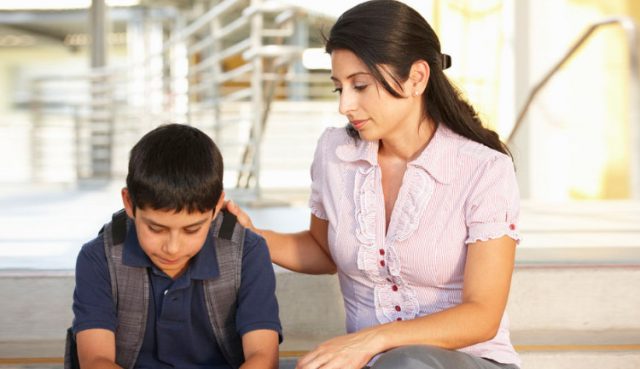
This week, when many children and teens are on spring vacation and celebrating Passover, the last thing we want to think about is a school shooting like the one that occurred last Monday, April 10, in San Bernardino, California.
Unfortunately, with the recent ISIS attacks in Egypt, the United Kingdom and elsewhere, the March stabbing of a black man by a white supremacist in NYC, and the 90 mass shootings that have occurred in 2017 so far, these tragic events are an all-too-common part of our lives.
While these acts of terror and tragedy can be overwhelming even for adults, they can hit our children particularly hard, because their brains are still developing.
At the Mount Sinai Adolescent Health Center, we work with traumatized teens and young adults every day. Let us help you have these conversations with your kids, so they can learn how to cope and build resilience. You can use these six tips as a starting point, and adjust based on your child’s needs, reactions, and maturity.
1. Stay calm.
The number-one predictor of a child’s response to trauma is the response of their caregivers. If you act highly upset, your child may have more difficulty relaxing. If you’re calm, children tend to have a better response.
2. Be honest.
Acknowledge the event. Explain what happened in a way your child will understand based on their age and maturity, but never lie. Young people can sense when something is wrong, and if you don’t have a truthful conversation about what’s happened, your child might imagine a far worse story.
3. Answer questions.
Make yourself available for your child to ask questions about the traumatic event. Answer factually, in a calm and straightforward manner. If you don’t know the answer to a question, you can say so.
4. Acknowledge fears.
Let your child know that it’s normal to feel upset and scared. The world, after all, can be a scary place, and you wouldn’t want your child to grow up thinking it’s never ok to feel afraid.
5. Avoid repeated exposure.
It’s normal for your child to be curious about a traumatic event, but seeing the details over and over again can cause a negative reaction. Try to keep your child from looking up story after story about the tragedy online. Graphic images in particular can be upsetting.
6. Return to normal routines.
Unless there’s an immediate threat to your child’s safety, try to return to normal routines (school, meals, activities, etc.) as quickly as possible. If the traumatic event has made this impossible, try to establish a new routine, as best you can. Rhythm and routines help your child feel safe.
We all want to help our kids feel safe in a scary world. We hope this advice helps you have these conversations with your kids — because as tragic as these conversations are, they are also, unfortunately, necessary.
If you notice that your child has a particularly hard time dealing with these events, consider suggesting therapy. Therapists can work with young people to build the tools they need to handle these kinds of events. If you live near NYC and your child is 10-22 years old, they can make a free, confidential mental health appointment at Mount Sinai Adolescent Health Center.
A version of this article was originally published on our Medium Channel on Dec. 3, 2015.
Dr. Matthew Oransky, PhD is the co-director of the psychology training program at Mount Sinai Adolescent Health Center, and provides individual, family, and mental health services for adolescents. He specializes in trauma, PTSD, and mental health care for LGBT youth.
The Mount Sinai Adolescent Health Center is located in New York City. It provides comprehensive, confidential, judgment free health care at no charge to over 10,000 young people every year. This column is not intended to provide medical advice, professional diagnosis, opinion, treatment or services to you or to any other individual, only general information for education purposes only.


